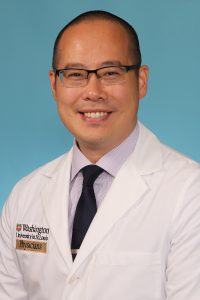Some institutions have planned for internal medicine hospitalists to be paired with redeployed specialists, much like the traditional, attending resident oversight structure in post-graduate medical training. Trainees from internal medicine already assume these roles, and those outside internal medicine can readily adapt within this structure.
Psychological Toll
We last faced tension between training and protecting our charges during the early years of HIV/AIDS spread.9 That tension was due not only to uncertainty regarding transmission and personal safety, but also to the psychological toll due to excess patient mortality and the futility of contemporaneous medical interventions. These concerns parallel our current challenges with COVID-19 and are arguably in more stark relief.
Our trainees face personal physical risk due to deficiencies in personal protective equipment supply, compounded by the psychological toll of dealing with excess patient mortality from a combination of lack of effective treatments and limitations in available intensive care unit beds and ventilators. Rationing care has become a reality for physicians across the world. This, combined with witnessing patients dying under isolation from their loved ones, is causing untold trauma.
These situations pose some of the most challenging dilemmas one can face as a physician—balancing patient autonomy against the community’s health, other sick patients and the health of providers. These are dilemmas all internists and redeployed physicians alike will experience and may be similarly ill prepared to handle in isolation.
Institutional guidance is critical to providing a principled approach to dealing with these situations. While the COVID-19 pandemic will define a generation of physicians, as the HIV/AIDS epidemic did, deployment plans for specialists and trainees alike should include forward-looking systems to support the expected needs resulting from the pandemic.
Final Thoughts
Beyond science, protocols and traditions, medicine is a humanistic and moral activity at its roots. Physicians will always answer the call to duty, and although the COVID-19 pandemic will pass, how we decide to allocate our medical and human resources will have far-reaching impact beyond the current crisis. We owe it to each other to remind ourselves that in the time of pandemic, a physician can become a patient within the span of a day. We must do all we can to protect the resources we need to effectively fulfill our duties.
David Y. Chen, MD, PhD, is an instructor in medicine in the Division of Dermatology at Washington University School of Medicine, Saint Louis (WashU). He was previously a member of the Center for the Study of Ethics and Human Values at WashU and was involved in formulating a tiered redeployment plan for the Division of Dermatology.



